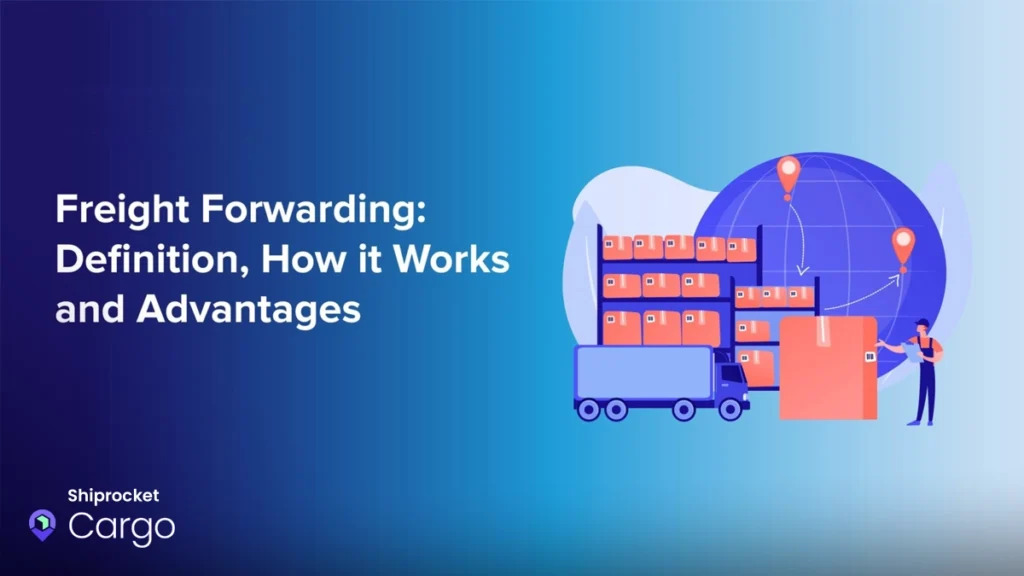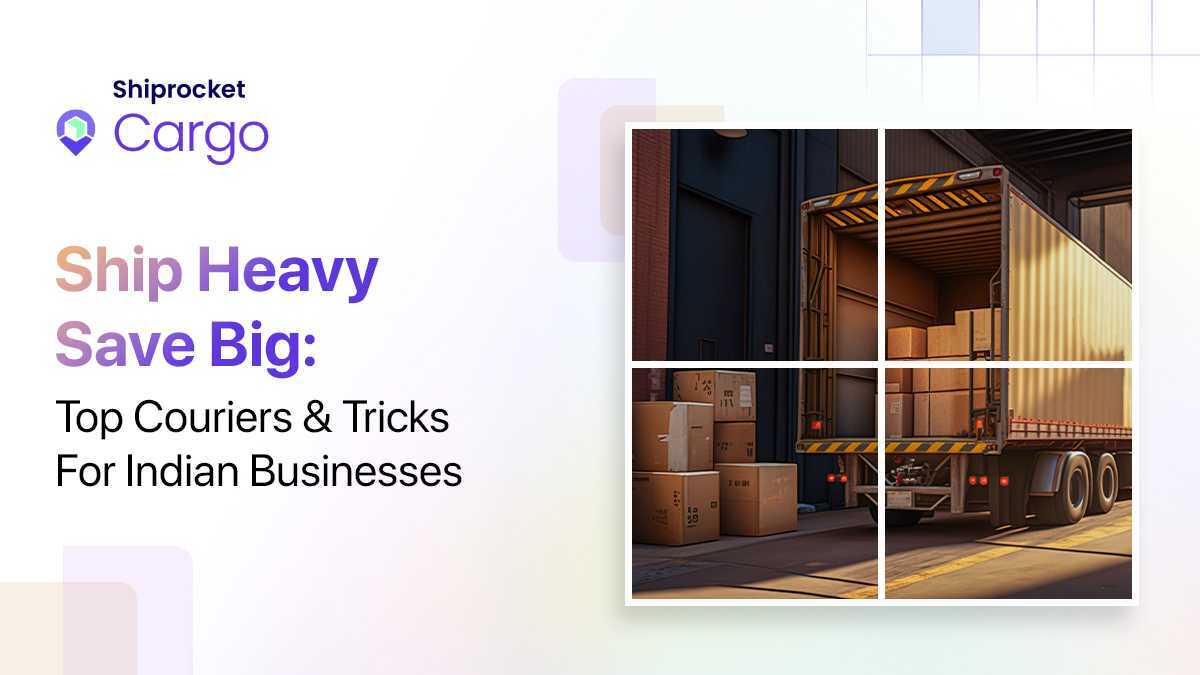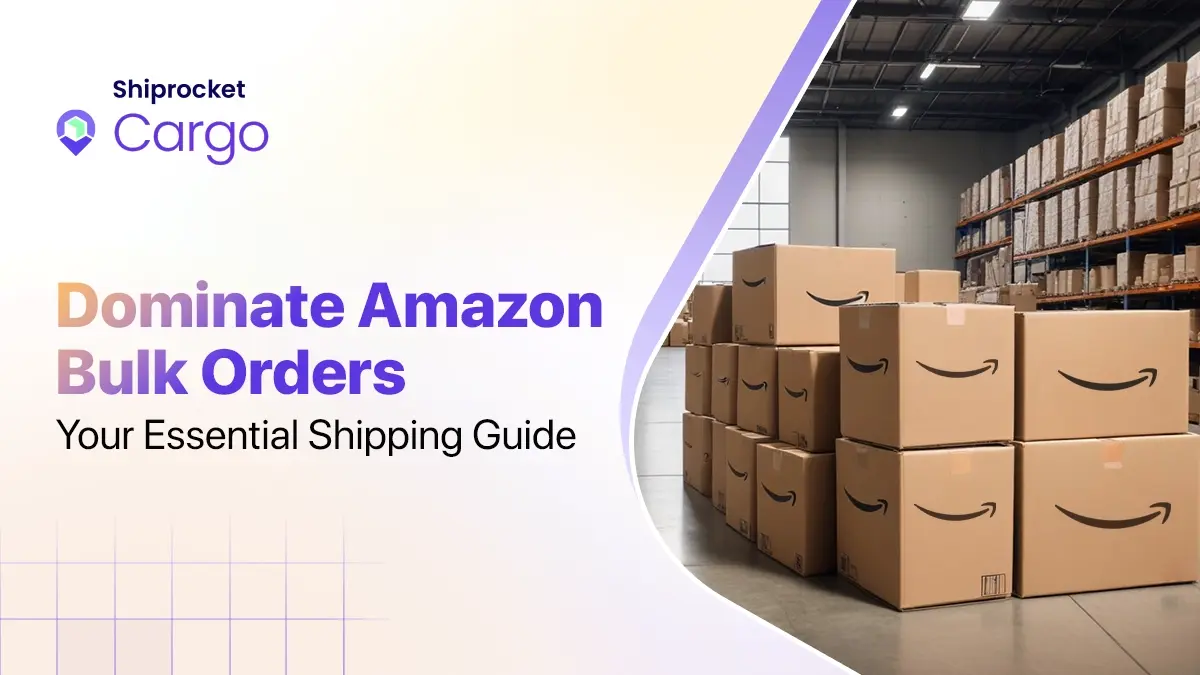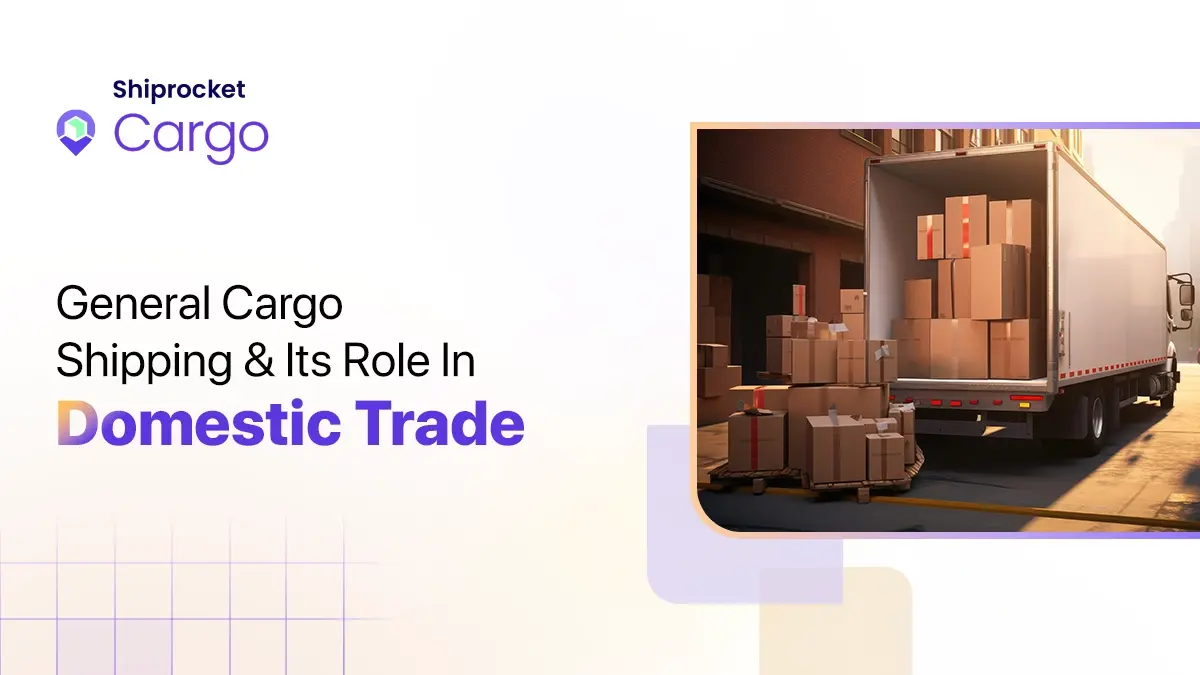The 7 Advantages Of Reverse Logistics In B2B Business

If done correctly, the benefits of reverse logistics management can significantly improve the warehouse’s profitability. In addition, reverse logistics could help the company’s image by increasing its customer base and net income. Even if customers return purchased items to the facility, brands can still turn it around and make it beneficial to their business.
According to Statista, the Indian logistics market was worth around USD 250 billion in 2021. This market is expected to grow to 380 billion dollars by 2025, with a compound annual growth rate of 10 to 12 percent. As a result, India has a higher logistics cost as a percentage of GDP, at 14%, than the BRICS average of 11%.
This blog will go over the advantages of reverse logistics management and how it can significantly impact operations and the business as a whole.
Get connected with Shiprocket Cargo for smooth reverse logistics in your b2b business.
What is Reverse Logistics?
Reverse logistics business manages the return or disposal of goods and materials, usually after they have been sold or used. It involves coordinating the movement of products from the end of their useful life back through the supply chain to the point of origin, such as a manufacturer or distributor. This can include returning products to a retailer or reseller, recycling them, or disposing of them in an environmentally responsible way.
Reverse logistics management can be complex and involves coordinating the movement of goods across multiple parties and stages in the supply chain. Nevertheless, it is an important aspect of supply chain management, as it helps to reduce waste and optimize the use of resources.
Related: Reasons Why Customer Service is Important in B2B Logistics
Importance Of Reverse Logistics
Reverse logistics business refers to managing the return and disposal of products and materials. It is an important aspect of reverse supply chain management, particularly in business-to-business (B2B) operations.
There are several reasons why reverse logistics is important in B2B businesses:
Customer Satisfaction
Reverse logistics business allows B2B companies to handle returns and exchanges efficiently, which can improve customer satisfaction.
Cost Saving
Properly reverse managing logistics can help a company reduce waste and minimize disposal costs.
Sign up with Shiprocket Cargo for smooth shipping and with no delays.
Sustainable Business Practices
By recycling or repurposing returned products, a company can reduce its environmental impact and demonstrate a commitment to sustainability.
Improved Supply Chain Efficiency
Reverse logistics management can help a company better understand the needs and preferences of its customers, allowing it to optimize its supply chain and reduce excess inventory.
Regulatory Compliance
In some industries, there are strict, strict regulations governing certain products. Reverse logistics can help companies comply with these regulations and avoid fines and penalties.
Overall, reverse logistics business management can help a B2B company improve its operations, reduce costs, and enhance its reputation with customers and other stakeholders.
Related: Top Common Challenges in Indian B2B Logistics Industry and Their Solutions
Benefits of Reverse Logistics For eCommerce Business
Reverse logistics management refers to managing the return and disposal of goods or materials in a supply chain. In a b2b context, here are the benefits of reverse logistics business management to your business, including:
1. Increased Sustainability
A business can reduce its environmental impact and improve its sustainability by reusing or recycling returned goods.
2. Enhanced Supply Chain Efficiency
By tracking and managing returned goods in a reverse logistics process, a business can improve its overall reverse supply chain efficiency and avoid disruptions caused by the return of goods.
3. Cost Savings
Implementing a reverse logistics process can help a business reduce the costs associated with disposing of returned or defective goods. For example, a company can refurbish and resell returned items rather than dispose of them, resulting in cost savings.
4. Increased Profitability
A business may increase its profitability by reducing costs and improving efficiency through reverse logistics.
5. Improved Customer Satisfaction
A well-managed reverse logistics business process can help a business handle customer returns and complaints more efficiently, improving customer satisfaction.
6. Stronger Brand Reputation
To improve brand reputation, focus on delivering high-quality products or services, consistently meet customer expectations, and engage with customers and stakeholders transparently and authentically. Respond promptly to any issues that arise and seek to address them adequately. Build trust and credibility through consistent, positive interactions and by being a responsible and ethical company.
7. Improve Profitability
There are many ways to improve profitability for a business. Some strategies include increasing sales, reducing expenses, improving efficiency and productivity, diversifying revenue streams, and finding new markets or customers. It can also be helpful to regularly review and assess the business’s pricing, cost structure, and financial performance to identify opportunities for improvement. It is important to continuously assess and adapt to the changing market and industry conditions to sustain long-term profitability.
Implementing a reverse logistics process can help a B2B business improve its operations, reduce costs, and increase customer satisfaction.
Let Shiprocket Cargo solve all your reverse logistics problems. All you have to do is sign up today!
Reasons Why Shiprocket Cargo Make Reverse Logistics Easier
There are several reasons why Shiprocket Cargo can make reverse logistics management easier for every b2b business:
- Expertise and resources: Shiprocket Cargo has specialized expertise and resources to handle the complex reverse logistics process. They have the necessary equipment, personnel, and systems to efficiently manage returns, repairs, and other aspects of reverse logistics.
- Network of carriers: It often has relationships with many carriers, making it easier to find the best transportation options for returning goods.
- Flexibility: Shiprocket Cargo can be flexible in its approach to reverse logistics, adapting to the specific needs of each business. This allows b2b businesses to tailor their reverse logistics processes to meet their unique needs.
- Scalability: They can scale their reverse logistics business operations to meet the changing needs of businesses, whether handling a sudden influx of returns or managing long-term reverse logistics processes.
- Cost-effectiveness: Outsourcing reverse logistics to Shiprocket Cargo can be more cost-effective than managing it in-house, especially for businesses that need more resources or expertise to handle it efficiently.
Conclusion
Reverse logistics is a great way to improve customer service while reducing the amount of product brands must discard, but it is not always perfect. The benefits of reverse logistics discussed in this blog should help customers understand the entire operation.
Shiprocket Cargo can assist you in your search for a reverse logistics partner.
Frequently Asked Questions
Q1. What are the benefits of reverse logistics?
A1. Reverse logistics can help reduce waste, lower costs, improve customer satisfaction, and increase efficiency in a reverse supply chain. It can also help with compliance, environmental regulations and promote sustainability.
Q2. How prompt service for reverse logistics can retain customers?
A2. Prompt service for reverse logistics can retain customers by demonstrating a commitment to customer satisfaction and convenience. When a customer needs to return a product or make an exchange, timely and efficient service can help build trust and loyalty. This can be especially important for businesses that rely on repeat or long-term customers, as providing excellent reverse logistics service can help ensure customer retention and satisfaction.
Q3. How to manage the reverse track of the product?
A3. To manage the reverse track of a product, it is important to establish clear policies and procedures for returns and exchanges and to have systems in place to track and process these transactions. This may involve coordinating with logistics providers, setting up a process for inspecting and evaluating returned products, and developing a plan for disposing or reusing returned items. It can also be helpful to have a customer service team handle inquiries and complaints related to reverse logistics.



